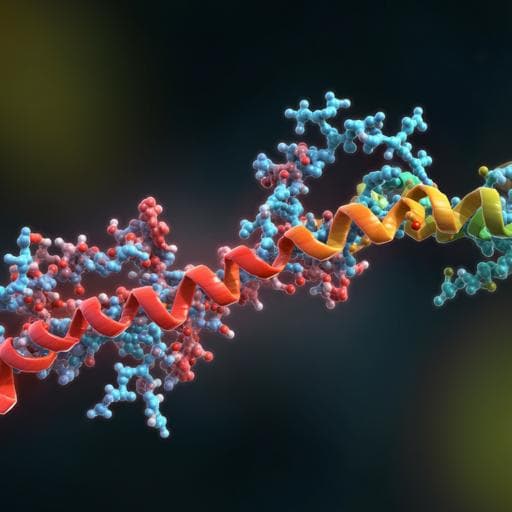
Chemistry
Design of target specific peptide inhibitors using generative deep learning and molecular dynamics simulations
S. Chen, T. Lin, et al.
This innovative study by Sijie Chen, Tong Lin, Ruchira Basu, Jeremy Ritchey, Shen Wang, Yichuan Luo, Xingcan Li, Dehua Pei, Levent Burak Kara, and Xiaolin Cheng showcases a groundbreaking computational method combining GRU-VAE with Rosetta FlexPepDock, leading to significant enhancements in peptide inhibitors targeting β-catenin and NEMO. With some inhibitors demonstrating up to a 15-fold improvement in binding affinity, this research elegantly merges deep learning with molecular modeling.
Related Publications
Explore these studies to deepen your understanding of the subject.







